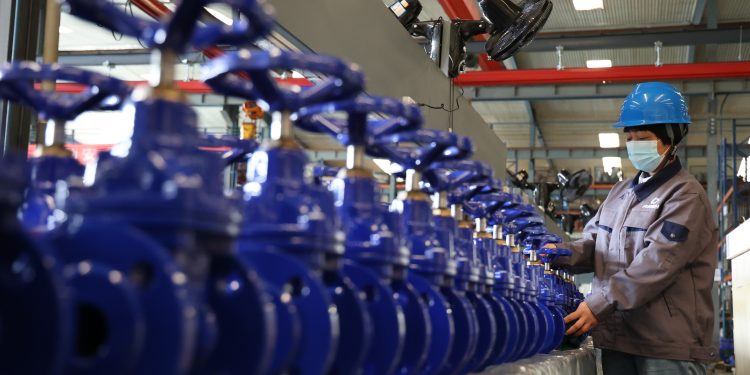Valves play a critical role in the operation of industrial manufacturing plants. They control the flow of various fluids, gasses, and materials within the system, ensuring optimal performance, safety, and efficiency. However, with a wide range of valve types and specifications available, selecting the correct valves for specific applications can be daunting.
This valve selection guide provides a comprehensive overview of key considerations and factors to help industrial plant operators make informed decisions when choosing valves.
Understanding Valve Types and Applications
The first step in selecting the correct valves for industrial manufacturing plants is to understand different valve types and their applications. Various valve designs are available, including gate valves, globe valves, ball valves, butterfly valves, check valves, and more. Each valve type has unique features and functionalities that make them suitable for specific applications.
For example, gate valves are commonly used in applications that require complete flow isolation, such as in water treatment plants or oil and gas pipelines. Globe valves are suitable for regulating flow and controlling pressure in applications where precise control is necessary. Ball valves from https://valveman.com/valves/actuated-ball-valves/ are versatile and widely used in various industries due to their reliable shut-off capabilities and low maintenance requirements.
To select suitable valves, it’s essential to consider the specific requirements of the industrial manufacturing plant, such as the type of fluid or material being transported, the desired flow rate, pressure and temperature conditions, and any specific regulations or industry standards that must be met. By matching the valve type to the application requirements, plant operators can ensure optimal performance and longevity of the valves.
Material Selection and Compatibility
Another crucial factor in valve selection is the choice of materials. The material of the valve body, trim, and seals should be compatible with the fluid or material being transported and the plant’s environmental conditions. Different materials offer varying levels of resistance to corrosion, erosion, and chemical compatibility, which can significantly impact the durability and performance of the valves.
For example, valves from corrosion-resistant materials like stainless steel or exotic alloys may be necessary for corrosive fluid applications, such as chemical processing plants. Valves with heat-resistant materials like cast steel or cast iron with suitable coatings may also be required in high-temperature applications.
It’s essential to consider the specific properties of the fluid, such as acidity, alkalinity, viscosity, and temperature, and select materials that can withstand these conditions without compromising the integrity of the valves.
Consulting with valve manufacturers or experts can provide valuable insights into material compatibility and help ensure the longevity and reliability of the valves in the industrial manufacturing plant.
Pressure and Temperature Ratings
Valves in industrial manufacturing plants are often subjected to high-pressure and high-temperature conditions. Therefore, it’s essential to consider the pressure and temperature ratings of the valves during the selection process. Each valve type has its maximum pressure and temperature limits, beyond which the valve may fail or experience reduced performance.
Pressure ratings indicate the maximum pressure a valve can withstand without leaking or causing damage. It’s crucial to select valves with pressure ratings exceeding the system’s operating pressure to ensure reliable and safe operation.
Temperature ratings specify the maximum temperature at which the valve can function effectively without deformation or degradation. Operating valves within their specified pressure and temperature limits is crucial to prevent potential safety hazards and ensure the longevity of the valves.
In addition to pressure and temperature ratings, factors such as pressure drop, flow rate, and fluid characteristics should also be considered. Properly sizing the valves based on these parameters can optimize the performance and efficiency of the industrial manufacturing plant.
Operational and Maintenance Considerations
Beyond the initial selection of valves, it’s essential to consider the operational and maintenance aspects to ensure smooth and efficient plant operation. Some valves require regular maintenance, such as lubrication or seal replacements, to ensure optimal performance and longevity. It’s essential to assess the maintenance requirements of the chosen valve type and consider the availability of spare parts and the expertise needed for maintenance and repairs.
Operational considerations such as actuation methods, control mechanisms, and automation capabilities should also be evaluated. For example, in modern industrial plants, there is an increasing trend toward using smart valves that can be integrated into plant control systems, enabling remote monitoring, control, and diagnostics. These intelligent valves offer improved process control, energy efficiency, and predictive maintenance.
All in All
Choosing suitable valves for industrial manufacturing plants is a crucial decision that directly impacts the operations’ performance, safety, and efficiency. By understanding different valve types, considering material compatibility, assessing pressure and temperature ratings, and evaluating operational and maintenance aspects, plant operators can make informed decisions to ensure the optimal functioning of their systems.
Consulting with valve manufacturers, industry experts, or professional engineers can provide valuable insights and guidance throughout the selection process. Industrial manufacturing plants can achieve enhanced productivity, reliability, and cost-effectiveness with suitable valves.







